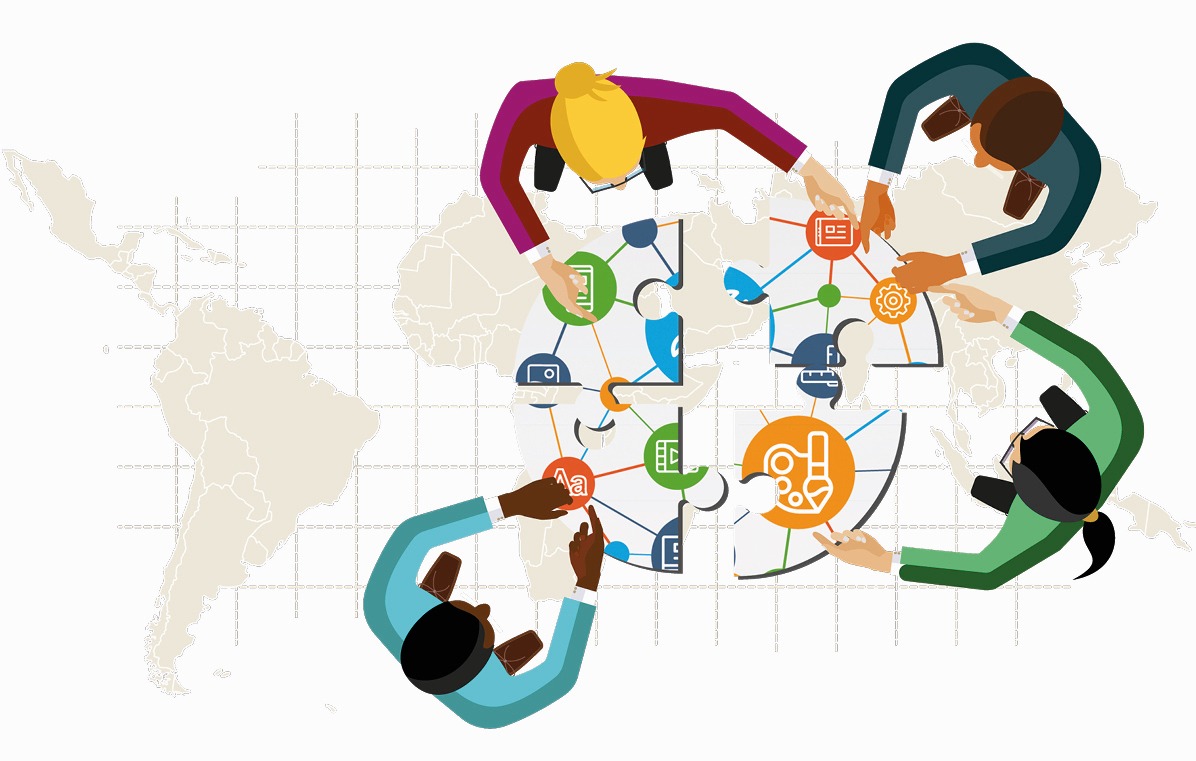

About the Challenge
The Digital Innovation Challenge in Response to COVID-19, supported by United Nations Office for South-South Cooperation (UNOSSC) and ITU, was launched in June 2021. It aims to help identify innovative digital solutions which can offer countries, societies, communities and institutions from the Global South to deal with the cascading effects of the pandemic – across governance, economy, social sectors and well-being – and contribute to the organization’s respective focus on South-South Cooperation and digital technologies. The project leverages ITU’s other innovation challenges, the global innovation forum and sustainable ecosystem development and training and UNOSSC’s Global South-South Development Centre (GSSDC) Network institutions, expertise and capacity development opportunities, to deliver on the desired outcome.

Innovation Categories/ Topics
The Digital Innovation Challenge is designed to easily share and rapidly develop innovative digital solutions to address the COVID-19 pandemic. The overall scope of the Challenge will correspond to the three focus areas identified by the UN Secretary-General i.e. i) tackling the health emergency by supporting health systems and non-health agencies;, ii) supporting countries in social impact and the economic response and recovery; and iii) helping countries to recover better by strengthening preparedness measures.



Challenge Outcomes
The Global South COVID-19 Digital Innovation Challenge intended outcome is to build a network of champions in developing-country ecosystems to i) accelerate the response to the negative effects of the COVID-19 pandemic; ii) grasp the current innovation impetus and bring innovative digital solutions into international development, and reach out to entities which are usually in innovation’s frontlines activities; iii) leverage South-South cooperation networks, platforms, and funding mechanisms to achieve impact at scale through sharing and replicating selected innovations; and iv) provide open access to resources from the international expert community and build entrepreneurship capabilities for innovators in governments, intergovernmental organizations, private sector and start-up companies, research institutions and academia, and CSOs.
Accelerate
Response to the negative effects of the COVID-19 pandemic
Grasp the current innovation impetus
Bring innovative digital solutions into international development, and reach out to entities that are usually in innovation’s frontlines activities
Leverage South-South cooperation networks, platforms, and funding mechanisms
Achieve impact at scale through sharing and replicating selected innovations
Provide Open Access
resources from the international expert community and build entrepreneurship capabilities for innovators in governments, intergovernmental organizations, private sector and start-up companies, research institutions and academia, and CSOs.
Selection of Winning Proposals
Over 250 submissions from over 50 countries were reviewed by an expert selection committee of over 40 members based on the evaluation criteria to determine the 25 best innovative solutions that can be replicated through South-South cooperation. Shortlisted projects presented their innovations to a selection committee during the Global Innovation Forum at a Pitch Live virtual events on 27 and 28 October 2021. The selection committee awarded 12 winners from 10 countries from the Global South, during the “Bringing it all together” Awards ceremony. The event was a part of the 2021 edition of the Global Innovation Forum, held by ITU, which focused on “building partnerships to mainstream entrepreneurship.”
Winning proposals were provided with seed funding up to USD 25,000 to implement/improve/scale up their proposed solution(s), with mentorship and training support, in a new market (developing country) by the end of April 2022. The list of selected winners is provided below:

List of Selected Projects
The Mentorship Scheme
As the next step, the selected 12 organizations will be able to avail the mentorship scheme to increase the potential/ capabilities of the selected proposals/ teams to scale up innovations across developing countries.
ITU and UNOSSC, through an open Call for Mentors, brought on board 24 experts comprising leading policy-makers, financiers, start-up accelerator/incubator programme managers and recognized ICT experts to train the winners to scale and enter new markets while improving lives and enhancing the capabilities of innovators. The mentorship scheme aims to increase the capabilities of the challenge winners and support them to scale up their innovations. The award winners will be matched with mentoring opportunities which will advise them on their innovations throughout the implementation and scaling up process. UNOSSC will seek out development partners that have expertise in ICTs and digital innovations to mentor the winners to scale and enter new markets while improving lives and enhancing the capabilities of innovators.

The kick-off session for the mentorship programme was held on 14 April and each organization was assigned a mentor.
Meet Our Mentors

Ugo Ikpeazu

Namatirai Zinyohwera

Alex Masika

Ahmed Khalaf Fahmy

Sara Hammoud

Erwin Middleton

Daniel Nieto

Mwende Njiraini

Fouad Bajwa

Carlos Pons

Stella Bvuma

Sreekanth Mukku

Preetam Singh Heeramun

Kalin Nicolov

Ahmed Riad

Koketso Seripe

Saahil Kapoor

Samuel K. Kruiner

Jeroen Van der Lugt

Althea WEST MYERS

Sana Larif

Eduardo Gonzalez

Hanisha Vaswani


